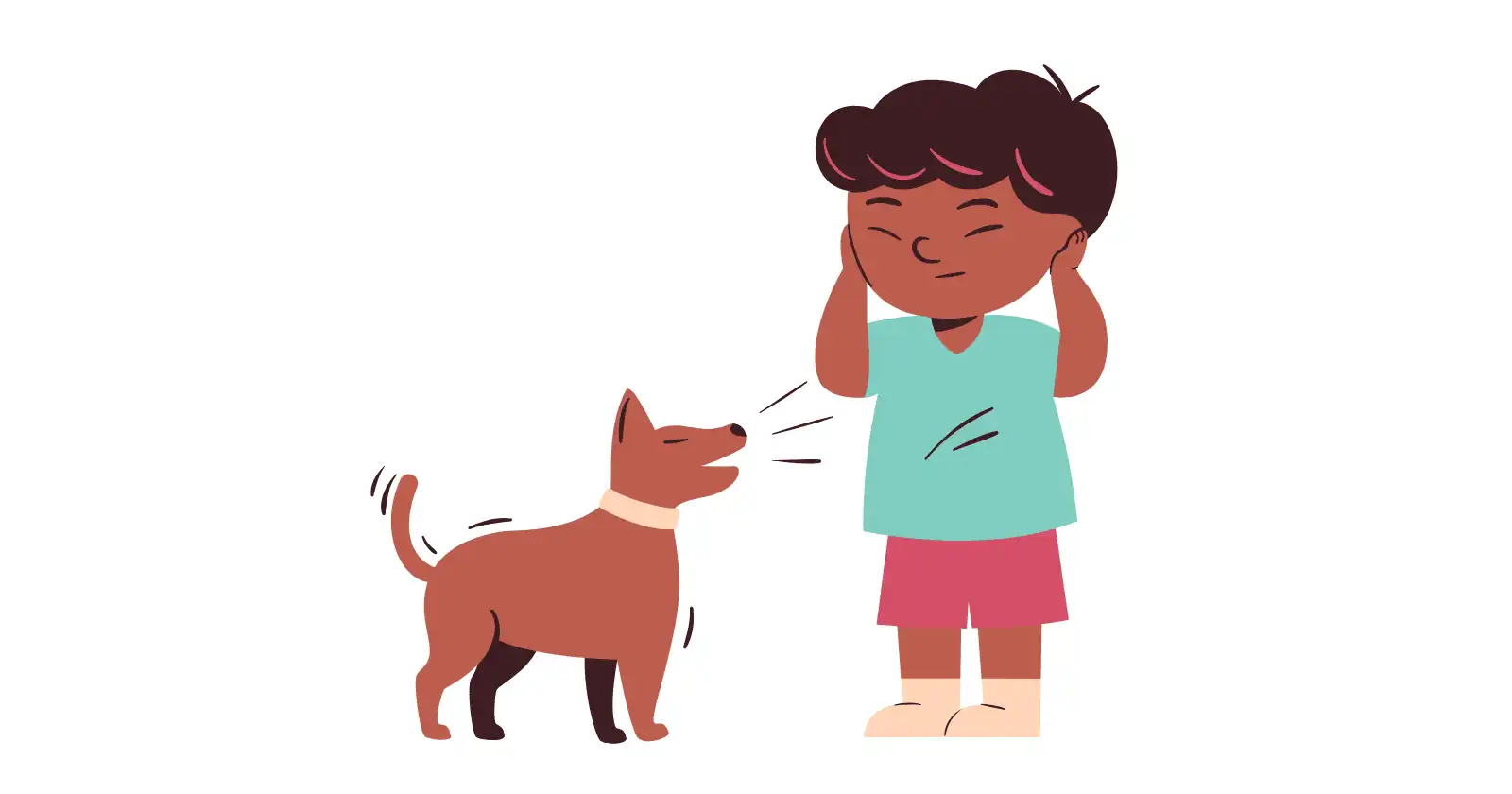How to Stop Excessive Barking in Dogs?

Table of Contents
Living with a furry friend brings immense joy, but it can also come with challenges, one of them being excessive barking. From alerting us to potential dangers to expressing their emotions, dogs use barking as a form of communication. However, when barking becomes excessive, it can disrupt our peace and even strain our relationship with our four-legged companions. In this blog, we will dive into the world of excessive barking in dogs, exploring its causes, prevention, and effective solutions.
What is Considered Excessive Barking?
Before we start, it's important to understand what constitutes excessive barking. While barking is a natural behavior for dogs, there is no set standard for defining “excessive barking”. In simple words, excessive barking goes beyond the norm of your dog’s usual barking and becomes a persistent issue. Nevertheless, we have provided some reasons here to help you understand the causes behind your furry buddy’s excessive barking.
Why Do Dogs Bark Excessively?

Dogs bark excessively for various reasons, each with its own unique paws-ibilities. Understanding the underlying motivation behind excessive barking is crucial in addressing the issue effectively. So, let's put on our detective hats and sniff out the reasons behind their performances.
1. Fear and Anxiety:
Dogs may bark excessively when they feel afraid or anxious about certain situations. Common triggers include thunderstorms, fireworks, unfamiliar people or animals, or being left alone.
2. Boredom and Lack of Stimulation:
Like humans, dogs can get bored. Without proper mental and physical stimulation, they may resort to excessive barking. Insufficient exercise, lack of interactive toys, or being confined to a never-changing environment can contribute to boredom-induced barking.
3. Underlying Health Issues:

Dogs may bark excessively due to pain, discomfort, or other medical conditions. So, if you spot your dog barking more than usual, consult a veterinarian to rule out any potential health concerns and ensure our furry companions receive the care they need.
4. Attention-Seeking Behavior:
Dogs are social creatures who crave our attention and affection. If they learn that barking brings a response, they may use it as a tactic to get our focus. Barking excessively when we're engaged in other activities or not giving them enough attention can be their way of saying, "Hey, look at me!"
5. Territorial Nature:
Some dog breeds have an innate sense of territoriality, more so than others, due to their genetic disposition, and may bark excessively to protect their perceived territory. They might bark at strangers approaching their territory, such as the front door or the backyard fence, signaling their presence and defending their domain.
6. Separation Anxiety:
Dogs are pack animals and can experience separation anxiety when separated from their human family members for long periods. Excessive barking, along with other signs like destructive behavior or excessive drooling, may indicate their distress and longing for company.
How Can One Correct Excessive Barking?

To put a stop to excessive barking, let's explore some positive strategies that can help curb this noisy behavior. Remember, consistency and patience are key when implementing these techniques. However, it is still good to be cautious and get it checked with a veterinarian once to see if it is a reaction to underlying health issues. Here are some tips to prevent excessive barking in dogs:
1. Desensitization and counter-conditioning:
Gradually expose your dog to the triggers that usually set off their barking, such as doorbells or strangers, while providing positive experiences and rewards. For example, you can make your dog realize that retreating to their safe space is rewarded when the bell rings use a YouTube audio or the door opens. Make sure to reward their behavior of retreating with verbal praise and treats. This helps them associate the triggers with positive outcomes and reduces their inclination to bark whenever someone drops by the house.
2. Provide a safe and comfortable environment:
Apart from counter-conditioning them, you can ensure that your dog has a cozy and secure space where they can retreat when they feel anxious or stressed. This can be a crate, a designated area with their bed and toys, or a quiet room where they can relax. Additionally, you can also train them to retreat to their safe space whenever someone rings the doorbell. Doing this can help modify their response of barking.
3. Use calming aids
Calming aids such as pheromone diffusers or anxiety wraps can help soothe your dog's nerves and reduce barking triggered by fear or anxiety. If retreating to their safe space is not working, consider consulting your vet and coming up with ways to help soothe your dog’s nerves.
4. Seek professional help:
If your dog's excessive barking persists despite your efforts, it may be beneficial to consult with a professional dog trainer or animal behaviorist. They can assess the situation, identify underlying causes, and provide tailored training techniques to address the specific needs of your dog. Also, if you are a pet parent from Bangalore, we would love to help you out by connecting you with one of our expert dog trainers who’ll design a program perfect for your dog.
5. Practice regular exercise and mental stimulation:
Ensure that your dog receives adequate physical exercise and mental stimulation\ to keep them engaged and prevent boredom. A tired dog is less likely to engage in excessive barking as they have expended their energy.
6. Remove distractions:
Add curtains or blinds to windows to block the view of outdoor triggers that may provoke barking, such as passing pedestrians or other animals. Use white noise sources, like a fan or calming music, to drown out external noises that might stimulate barking if your dog is in the living room with you.
7. Avoid punishment:
Finally, make sure not to yell at your dog or let your frustration get the best of you. More often than not, it often worsens their behavior or leads to undesirable consequences. Instead, focus on positive reinforcement and reward-based training to encourage desired behavior. Nevertheless, if they are barking just to see your attention, ignore them and turn your back on them. But, when they fall silent between their bouts of barking, reward them with treats. This creates a positive association with silence, and their excessive barking will stop eventually.
Conclusion
Excessive barking in dogs can be a common issue, but with understanding and the right strategies, it can be managed effectively. By addressing the underlying reasons behind the barking and implementing positive techniques along with early socialization, we can promote better communication and a calmer environment for both our dogs and ourselves. Remember that our goal as pet parents is to build a strong bond with our dogs based on trust and love. By addressing excessive barking and promoting effective communication, we create a harmonious relationship filled with joy and wagging tails. Together, we can help our furry friends become well-behaved companions who bark when necessary and find other ways to express themselves. With time, patience, and the right techniques, we can create a peaceful and loving environment for everyone involved.


